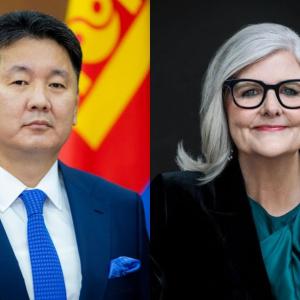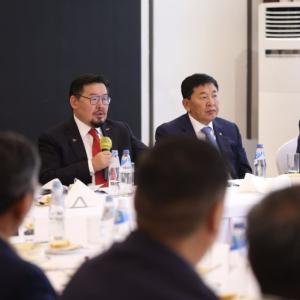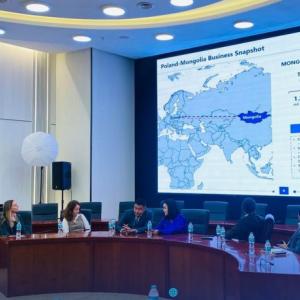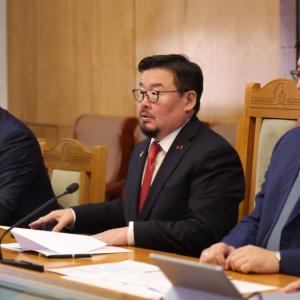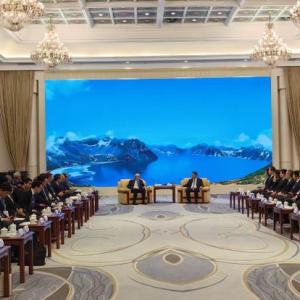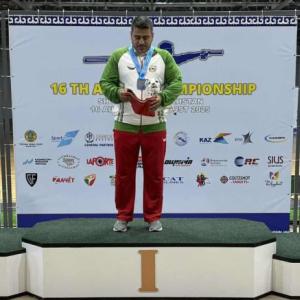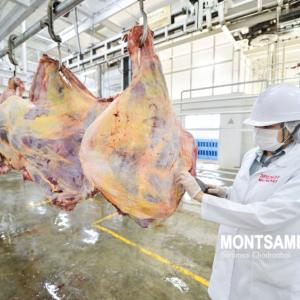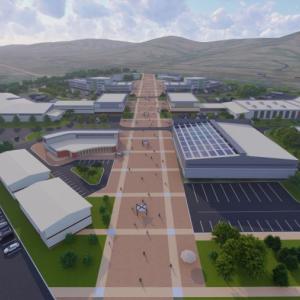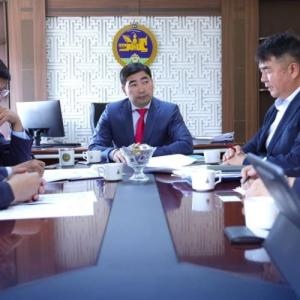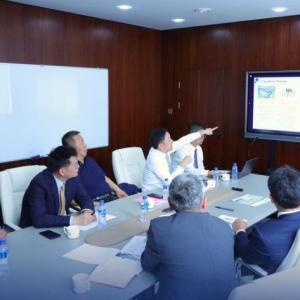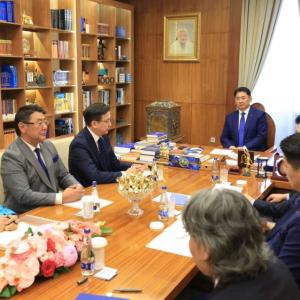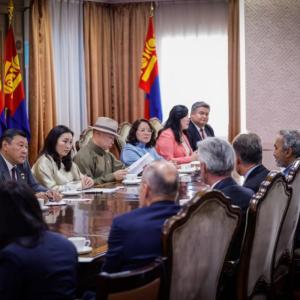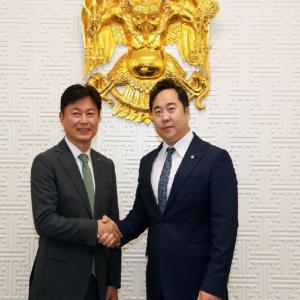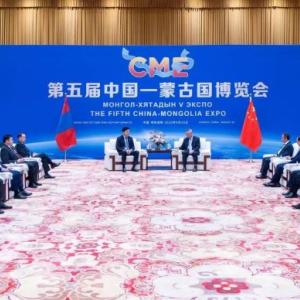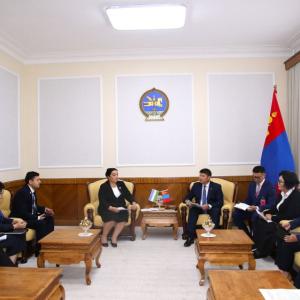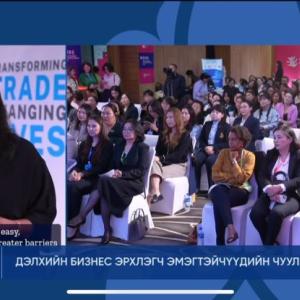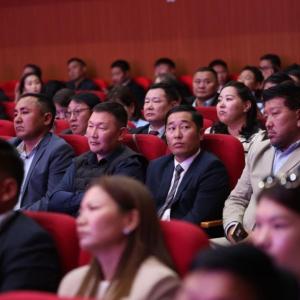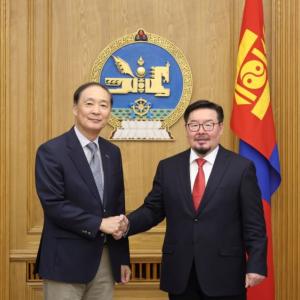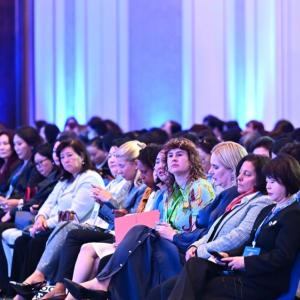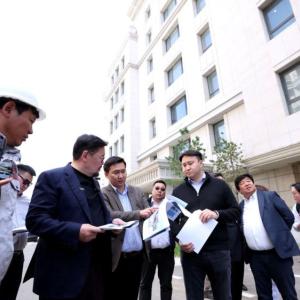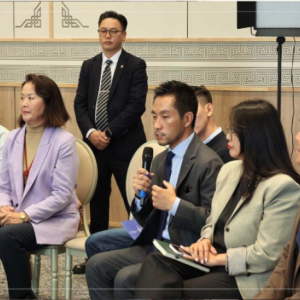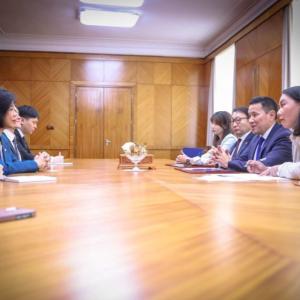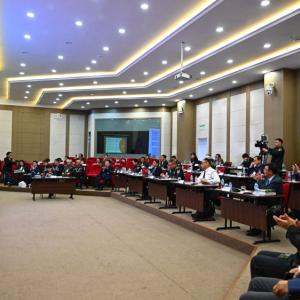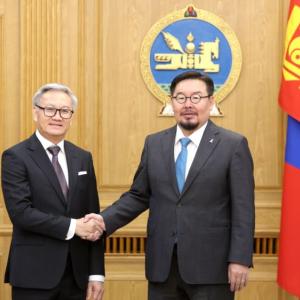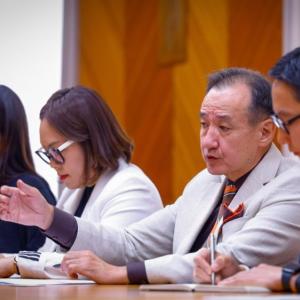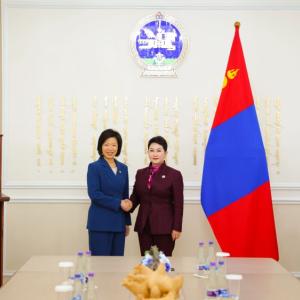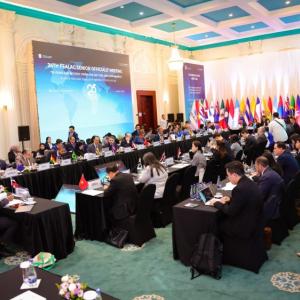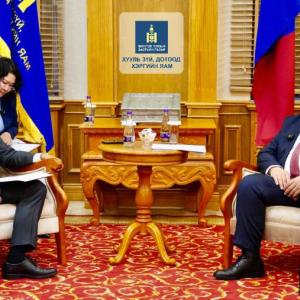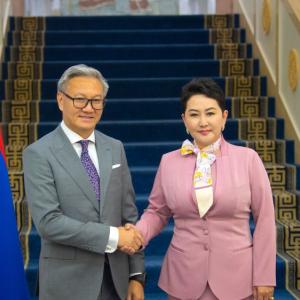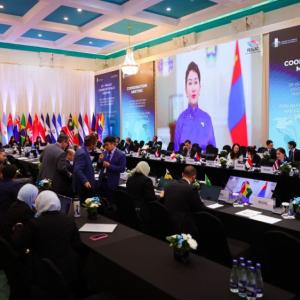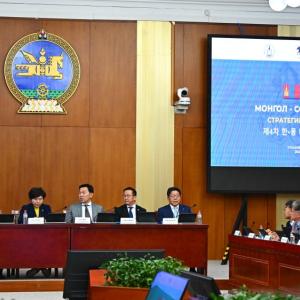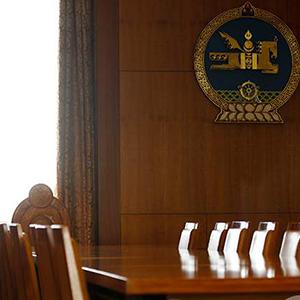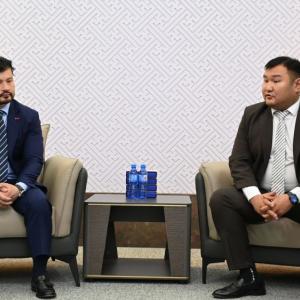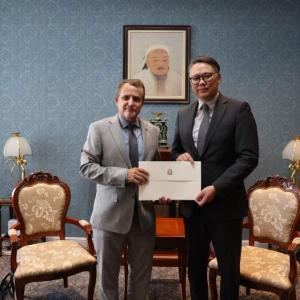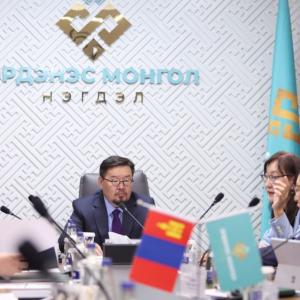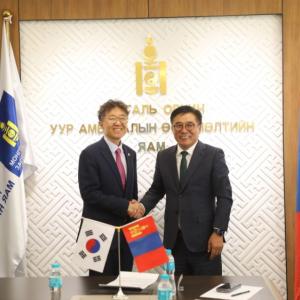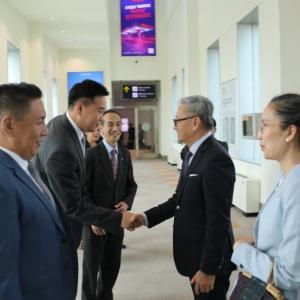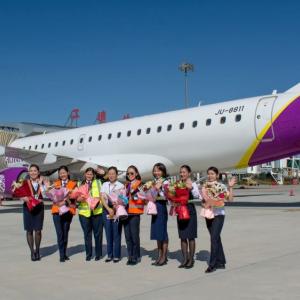Mongolia’s Open Budget: Key to a Transparent and an Accountable Future
Economy
Ulaanbaatar/MONTSAME/. Open data has an important role to
play in bolstering the relationship between citizens and governments. Opening
up data—in particular, public finance data such as those relating to budgets,
public revenues, expenditures and debt —can have tremendous effect in improving
service delivery, creating more transparent and accountable governments, and
fostering economic growth.
The concept of fiscal openness was built into the Mongolian
laws and regulations through specific provisions for budget transparency and
citizen engagement in budget, audit, and legislative processes. Concerted
efforts, mostly led by the Ministry of Finance (MoF), helped bring the hefty
transparency agenda down to people’s daily lives. This was done by providing
timely access to comprehensive fiscal and financial data through different
channels and formats.
These efforts have started showing concrete results as
confirmed by the latest Open
Budget Survey (OBS), the world’s only independent and comparative measure
of the three core components of budget accountability — transparency,
participation, and oversight — at the central government level. In the
last two years, Mongolia’s score in Open
Budget Index (OBI), based upon credible survey data, increased by over
20% from 46 in the 2017 to 56 in 2019 (on a scale of 100) — a significant
improvement that governments could not usually achieve during one OBS
assessment period.
“Improving budget transparency and enhancing public
participation plays a crucial role in building a strong partnership between the
government and the people,” said Ch. Khurelbaatar, H. E. Minister of
Finance of Mongolia. “Accordingly, the government of Mongolia has
committed itself to ensure that citizens have open and convenient access to the
budget information. We at the MoF are delighted with the latest progress made
and would like to affirm that a continued effort will be made for further
enhancement.”
This jump can be attributed in part to Mongolia’s timely online publication of the Year-End Report and the Pre-Budget Statement. The release of the enacted budget and the production of the Citizen’s Budget booklets also helped improve the score. The booklets are released at the time of the budget proposal presentation to the Parliament, and they have provided key budget data to the public in a user-friendly way since 2018.
"Access to budgetary information is crucial for
evaluating the government’s performance and ensuring governmental activities
and programs are in the best interest of the citizens, especially during the
challenging times of COVID-19. The World Bank is pleased to partner with the
European Union and the government of Mongolia to enhance budget transparency
and public participation in efforts to address people’s needs and improve their
lives. "
Andrei Mikhnev
World Bank Country Manager for Mongolia
Blazing the transparency and participation road
Fiscal transparency is more crucial now more than ever, as
countries face the devastating COVID-19 effects that have increased the need
for governments to play a lead role in emergency response and economic
recovery. Citizens and taxpayers need not only to understand the emergency
measures taken by the government, but also how resources are raised and
allocated, and why certain seemingly difficult policy measures need to be in
place to address the pandemic’s impact.
To ensure that all citizens have access to the information
on how public resources are raised and spent, the MoF is working with the
European Union (EU) and the World Bank on the Strengthening
Governance in Mongolia project. In partnership with the Global
Initiative for Fiscal Transparency (GIFT),
the project is helping the country translate existing principles and
standards on budget openness into better practices. Ongoing efforts including
preparation of the Citizen’s Budgets, revamping of the Glass Account Portal,
development of the BOOST Platform, and workshops with the civil society are all
helping the country advance in budget transparency and citizen participation.
“Access to budgetary information is crucial for evaluating
the government’s performance and ensuring governmental activities and programs
are in the best interest of the citizens, especially during the challenging
times of COVID-19,” said Andrei Mikhnev, World Bank Country Manager
for Mongolia. “The World Bank is pleased to partner with the European
Union and the government of Mongolia to enhance budget transparency and public participation
in efforts to address people’s needs and improve their lives.”
“Access to budget information and clear budget processes has
the potential to empower citizens on their endeavor to improving their lives.
Budget transparency is closely linked with better socio-economic and human
development indicators, higher competitiveness and reduced corruption,” said Traian
Hristea, H.E. The European Union Ambassador to Mongolia. “The EU’s support
together in good partnership with World Bank and the Ministry of Finance in
improving transparency and accountability in the budget process also reflects
broader commitments to good governance and anti-corruption reforms.”
Looking toward a more transparent future
Despite the progress so far, more work lies ahead for Mongolia to achieve the level of fiscal transparency it has envisioned. With an OBI score of 56, Mongolia is only five points away to join more advanced countries that release substantial information (a score of 61 or higher). To get there, the country can act immediately on a number of next steps, including:
- Publishing in a timely manner all eight key budget
documents, which should contain meaningful and relevant budget information
guided by public demand. Online budget data should be easy to understand,
transform, and use.
- Accelerating progress and deliver the promises of open
budgeting to all citizens by:
- Joining the Call
for Action proposed by the International Budget Partnership (IBP) to
unite all relevant stakeholders in a global effort; and
- Increasing public participation in the budget process by
applying the GIFT Principles
of Public Participation in Fiscal Policies, and joining the GIFT network.
- Actively seeking public inputs and creating structured
spaces for state-citizen interfaces and joint problem-solving around the use of
public funds; and building on the results of ongoing initiatives, including the
Glass Account Portal, the Public Investment Management System, and the
Citizen’s Budget.
“We at GIFT would be pleased to see Mongolia, as a partner
of the network, accelerate and sustain the current progress by institutionalizing
budget transparency and participation practices, and investing in building
institutional and citizens’ capacity to demand and support open budgeting
reforms,“ said Juan Pablo Guerrero, Network Director, Global
Initiative for Fiscal Transparency.
The future is open, and so is the government’s vision for
the country. Collaboration, commitment, and partnership among all stakeholders
is the only way forward toward a more open future. Mongolia has all the
requirements in place to achieve its ambitious yet attainable targets of budget
openness and participation within the next period of the OBS.
Source: World Bank

 Ulaanbaatar
Ulaanbaatar

